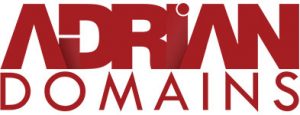[ad_1]
Titled “Endgame,” the co-founder of Ethereum, Vitalik Buterin, has put forward a hypothetical idea of a “big blockchain” that is trustless and censorship-resistant but indefinitely accompanies some of the common trade-offs such as scalability and centralization when it comes to block production.
Aesthetically Ugly
To achieve a system in which the block production is still centralized but the block validation is trustless and highly decentralized in nature, there need to be certain updates in place.
Buterin listed down a series of implementations, including the addition of the second tier of staking, the introduction of fraud proofs/ZK-SNARKS, data availability, and secondary channels for transactions. A system with all the aforementioned solutions would provide basic infrastructure, but the exec believes it would still be “somewhat aesthetically ugly.”
In fact, rollup implementations, such as Arbitrum, Optimism, Zksync, StarkNet, would also result in a similar outcome of centralized block production. Buterin stated that single rollups will be unsuccessful in holding almost more than half of Ethereum’s activity and would max out at a few hundred transactions per second instead.
Even though a multi-rollup future for Ethereum would present decentralized validation, robust censorship resistance, and even distributed block production, there is one catch. The exec asserted that the decentralization of block production may not last very long and cited the possibility of cross-domain MEV.
He added,
“There are several benefits to being able to construct the next block on many domains at the same time: you can create blocks that use arbitrage opportunities that rely on making transactions in two rollups, or one rollup and the main chain, or even more complex combinations.”
In a nutshell
In a multi-domain world, Buterin claimed that there are “strong pressures toward the same people controlling block production on all domains.” While a situation such as this is hypothetical, it is not entirely impossible. In short, centralization is one factor that continues to emerge irrespective of the route a blockchain plans on following.
This is where protocol-level mechanisms that include committee validation, data availability sampling, and bypass channels to “regulate” the market come. These techniques would ensure that the power is not abused by any players.
Regarding Ethereum, the co-founder believes that the “profound benefit” of the network’s rollup-centric roadmap implies that it is “open to all of the futures.” Furthermore, the blockchain does not need to “commit to an opinion.”
On a note to ETH researchers, Buterin pointed that it is important to have a clear understanding of what levels of decentralization in block production are achievable. He concluded by saying that the implementation of complicated plumbing may not render advantageous if cross-domain MEV makes it unsustainable.
[ad_2]
Source link



